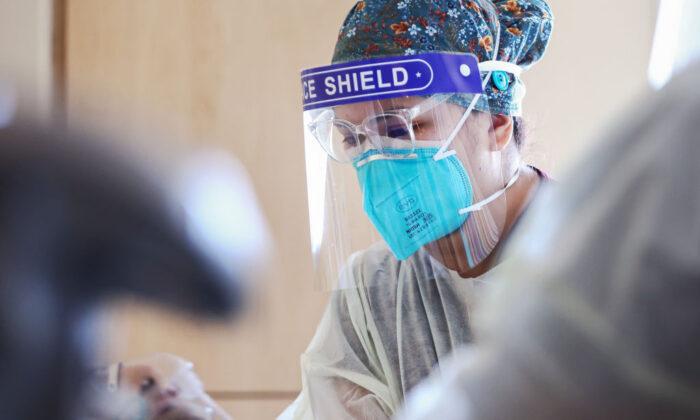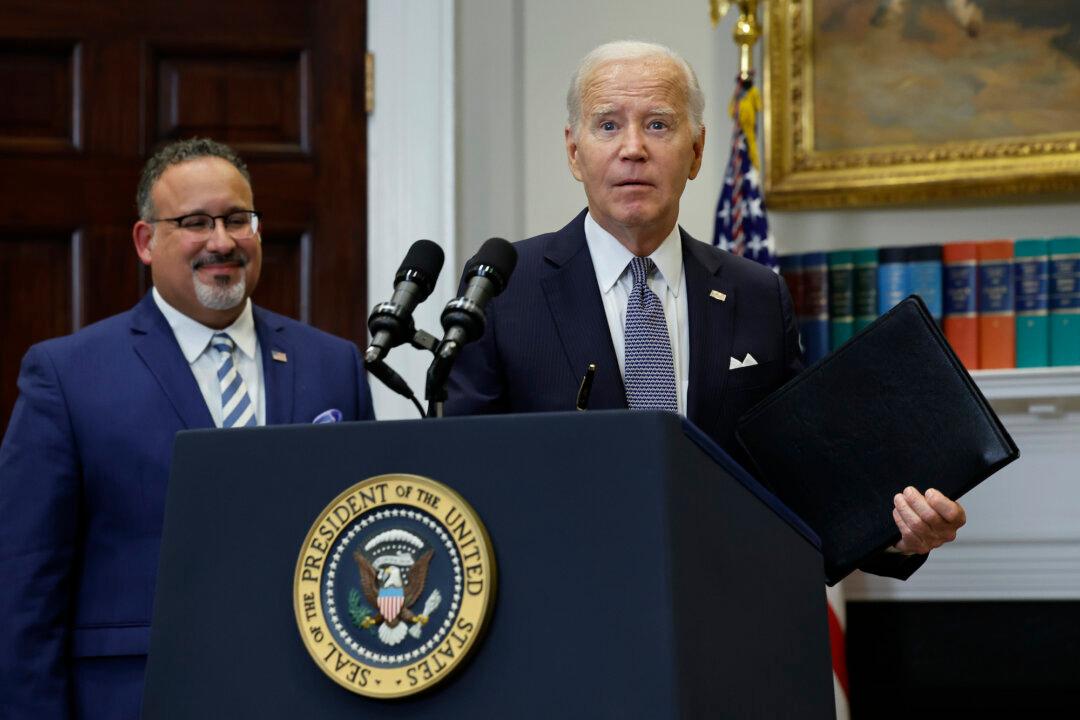In its latest effort to make permanent pandemic-era mandates for health care workers, the federal agency regulating workplace safety has submitted a final draft of rules to the White House budget office for review.
The Occupational Safety and Health Administration (OSHA), which sees exposure to COVID-19 as a matter of workplace safety, in June 2021 issued a temporary emergency standard for health care facilities that include requirements around screening, ventilation, physical distancing, physical barriers, cleaning and disinfection, and masks.
On Dec. 9, almost a year after the initial withdrawal, OSHA sent a final draft to the Office of Information and Regulatory Affairs at the White House Office of Management and Budget for review.
The push for a permanent COVID-19 standard has been met with mixed reactions, including disappointment from employer groups and cheers from labor unions.
National Nurses United, the largest nursing union in the United States, applauded the move, arguing that its members and patients in their care are still under the threat of “new, more immune-evasive” variants of COVID-19.
The union also laid out a list of specific measures it wants the permanent standard to include, including screening and testing of patients, visitors, and workers; isolation of patients with suspected or confirmed COVID-19; providing personal protective equipment for workers caring for patients with suspected or confirmed COVID-19, contact tracing and notification for COVID-19 exposure; and paid leave for workers who are exposed to or infected with COVID-19.
“Many nurses continue to experience the devastating impacts of long COVID,” said Deborah Burger, president of National Nurses United. “This is why we need a permanent standard and why we must continue to maintain multiple measures of infection control.”
Meanwhile, health care provider organizations such as the American Hospital Association (AHA) argued that there’s no need to establish a permanent COVID-19 standard, since employers have already been complying with the Centers for Medicare & Medicaid Services’ (CMS) vaccination mandate and following the Centers for Disease Control and Prevention’s (CDC) ever-changing guidelines.
“The AHA does not believe that finalizing the OSHA interim final rule will provide any additional benefit beyond what hospitals have already been doing, and continue to do, to protect their workforce throughout the pandemic and afterwards, as the [Public Health Emergency] ends and COVID-19 becomes endemic,” the group argued. “As such, we urge OSHA not to finalize its interim final rule.”
The anticipate rules also face opposition from Republican members of Congress.
On Sept. 26, Reps. Virginia Foxx (R-N.C.) and Fred Keller (R-Penn.), the top Republicans on House Education and Labor Committee and Workforce Protections Subcommittee, respectively, argued that it’s absurd that OSHA insists to move forward with a COVID-19 rulemaking even after President Joe Biden proclaimed the pandemic to be over.






Friends Read Free